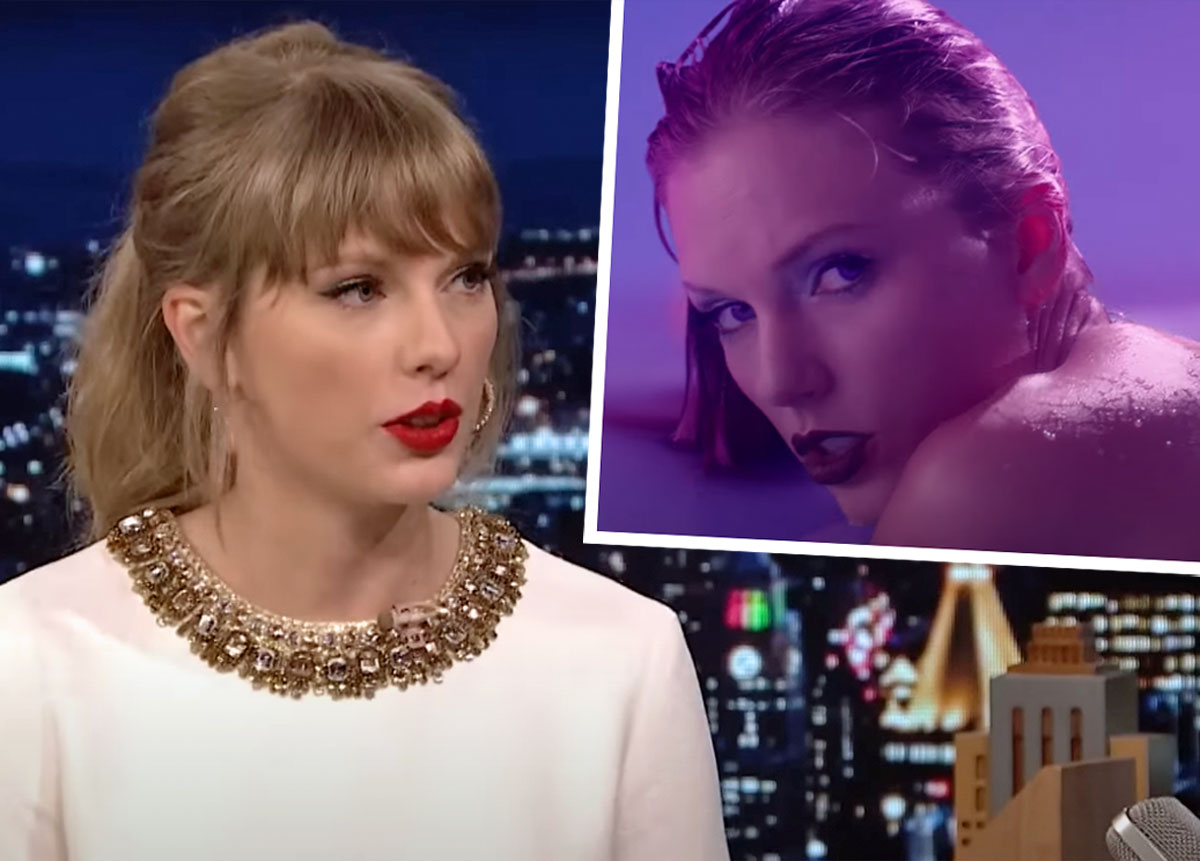AI Created Celebrity Porn To Be Reviewed By Meta’s Oversight Board; The Epidemic Of Deepfake Porn Ruining Many Lives And It Is Worse Than You Think
Meta's Oversight Board is currently examining Meta Platforms' handling of two AI-created celebrities porn circulating on its Facebook and Instagram services. This independent board, funded by the social media giant but operating autonomously, is using these incidents to evaluate Meta's policies and enforcement practices concerning AI-generated pornographic content. There is a new threat lurking in the digital world - the age of deepfake porn, where advancements in artificial intelligence have birthed a phenomenon that undermines the very fabric of consent and privacy. The effects of AI technology and the emergence of deepfake porn have left society struggling with the dark underbelly of the digital age.

Ai Created Celebrity Porn, Deepfakes And The Havoc On Society
Imagine waking up one day to find a nude image of yourself circulating online, but you never took such a photo.
The shock, horror, and embarrassment of discovering that someone has ruthlessly superimposed onto explicit content without your consent is a nightmare scenario that many individuals are tragically experiencing in the age of deepfake porn.
This cunning form of manipulation, boosted by advancements in AI technology, has become a prevalent menace, leaving its victims vulnerable to deep emotional distress, reputational harm, and even threats to their personal and professional lives.

Meta’s Small Steps
Meta’s Oversight Board is currently scrutinising Meta Platforms’ response to the circulation of two AI-generated sexually explicit images of female celebrities on its Facebook and Instagram platforms.
Although funded by the social media giant, this independent board operates autonomously and is using these incidents to evaluate the effectiveness of Meta’s policies and enforcement practices concerning AI-generated pornographic content.
Without disclosing the identities of the depicted celebrities to prevent further harm, the board provided descriptions of the images in question.
However, the proliferation of fabricated content, including images, audio, and videos, indistinguishable from authentic human-created material due to advancements in AI, has led to a surge in sexually explicit fakes online, predominantly targeting women and girls.
Earlier this year, the Elon Musk-owned platform X faced difficulties managing the dissemination of fake explicit images of U.S. pop star Taylor Swift, resulting in a temporary block on searches for her images.
Describing the cases under review, the Oversight Board detailed one instance involving an AI-generated nude image resembling a public figure from India, shared on an Instagram account dedicated to AI-generated images of Indian women.
The other image, found in a Facebook group for sharing AI-generated content, depicted a nude woman resembling an “American public figure,” with a man groping her breast.
Meta initially removed the image featuring the American woman for violating its policy against bullying and harassment, which prohibits “derogatory sexualised photoshops or drawings.”
However, the company initially opted to keep the image featuring the Indian woman online, reversing its decision only after the Oversight Board selected it for review.

The Growing Menace of Deepfake Porn
The line between reality and fabrication is becoming increasingly blurred in today’s digital age.
With rapid advancements in artificial intelligence (AI), what appears on our screens can no longer be assumed to be genuine; AI’s capabilities are expanding at an exponential rate.
The technological marvel has given way to a sinister phenomenon known as deepfake porn, a disturbing trend that flourishes in the shadows of the digital realm.
Deepfake porn, as its name suggests, involves the creation of pornographic content using AI technology to superimpose the faces of individuals onto explicit material, often without their consent.
This shameful practice has gained traction in recent years, with deepfake creators offering their services for a fee, fulfilling requests to produce illicit content featuring any chosen individual.
As a result, a plethora of fake not-safe-for-work videos have inundated online platforms dedicated to the dissemination of deepfakes, perpetuating a culture of exploitation and violation.

The Deadly Impact
The insidious nature of deepfake porn extends beyond mere fabrication, infiltrating the lives of unsuspecting victims and wreaking havoc on their personal and professional well-being.
Livestreaming platforms like Twitch have found themselves mired in controversy as deepfake porn targeting popular female streamers is spreading like wildfire across cyberspace. Deepfake porn, as a form of visual manipulation facilitated by AI technology, is easily accessible to anyone through various apps and websites.
These AI algorithms, trained to digitally remove clothing from images and replace them with naked body parts, predominantly target women, perpetuating harmful stereotypes and objectification.
However, the proliferation of synthetic sexual images derived from real individuals’ likenesses shared without consent emphasises the ethical difficulty posed by the intersection of technology and exploitation.
While efforts to combat deepfake porn are underway, the complexity of addressing this multifaceted issue is enormous – deepfake porn is threatening the dignity, autonomy, and safety of individuals worldwide.
The Wildfire Trap
AI-generated pornography, the creation of hyper-realistic images of attractive individuals, typically female, solely through computer coding.
These fabricated personas often find their way onto online forums like Reddit, where they entice unsuspecting users with seemingly innocent lines, leading them to paid pornographic platforms.
This practice has sparked widespread concern among various groups, ranging from pornography models to social scientists, and even among consumers themselves who feel deceived.
Amidst the debate surrounding AI porn lies a fundamental question – can pornography still be considered as such if no actual humans are involved in its creation?
Despite these images’ artificial nature, the arousal they evoke is undeniably real.
The introduction of generative Artificial Intelligence across various online domains has heralded significant changes, many deemed detrimental.
The distressing reality of AI porn and its devastating impact on countless young women globally, the technology enables the simulation of realistic sexual acts using individuals’ private photos or videos without their consent, resulting in deep emotional distress and significant harm to their personal and professional lives.

Who To Catch
Compounding the issue is the challenge of legal accountability.
Given the lack of regulations and precedents surrounding artificial intelligence, pinpointing the source behind the creation of these simulations proves exceedingly difficult.
As a result, identifying whom to hold responsible – be it the individual who initiated the process, the photographer, or the creators of the AI – remains a daunting task.
Amidst online discourse, advocates often argue that AI-generated porn can be swiftly eradicated. They point to a precedent set in 2020 when Pornhub purged millions of unverified videos from its platform in response to the rampant dissemination of revenge porn, where private content was shared without consent as a form of retaliation or social currency among teenage peers.
However, despite Pornhub’s cleanup efforts, the internet never truly forgets.
Even if major platforms manage to mitigate the spread of AI-generated pornography, erasure remains an elusive goal.
The crux of the issue lies beyond mere removal; it resides in the inherent difficulty of moderating AI-generated content, blurring the lines between reality and fabrication.
Deepfake technology has advanced to the extent that fabricated individuals within videos can seemingly provide consent, further complicating the moderation process.
Moreover, distinguishing between genuine content and artificially generated simulations poses a formidable challenge, confounding even the algorithms employed by online platforms.
With estimates suggesting that 4-15% of internet traffic is dedicated to pornography, lax moderation policies prevail across many online platforms.
In the pursuit of maximising ad revenue, these platforms often exploit the quick dopamine fix sought by porn-addicted individuals. The proliferation of AI technology has only heightened this trend, empowering users to access unprecedented levels of tailored content.
As a result, the demand for AI-related pornography is on the rise, accompanied by a concerning lack of content moderation.
The Last Bit, As society struggles with the ethical implications of advancing digital technology, the internet remains a tool for boundless information and entertainment.
However, the unchecked proliferation of AI-generated pornography spotlights the urgent need for comprehensive regulation and ethical consideration.
If we fail to address these issues, we risk eternalising a culture of exploitation and desensitisation, with far-reaching consequences for individuals and society as a whole.



